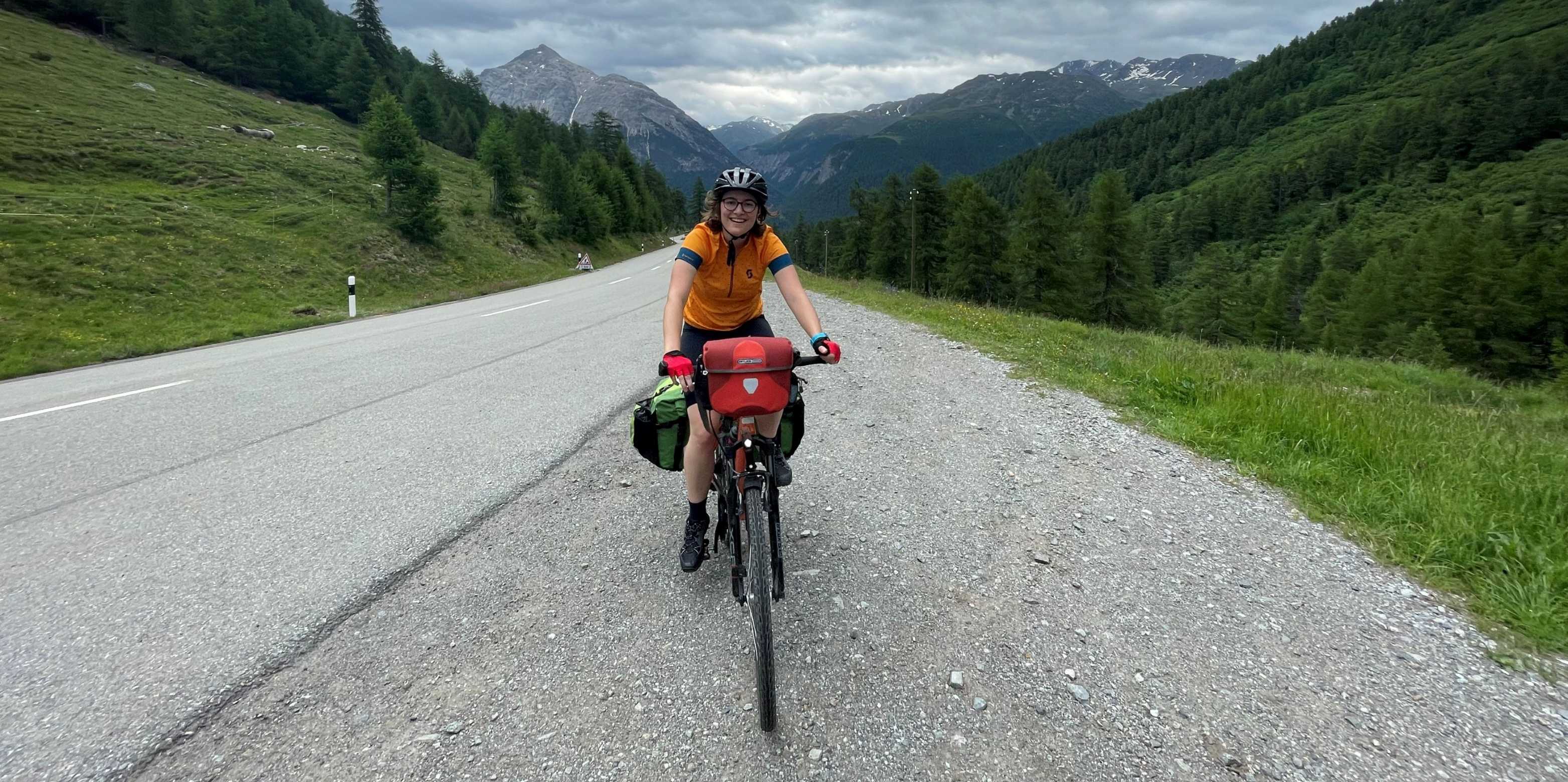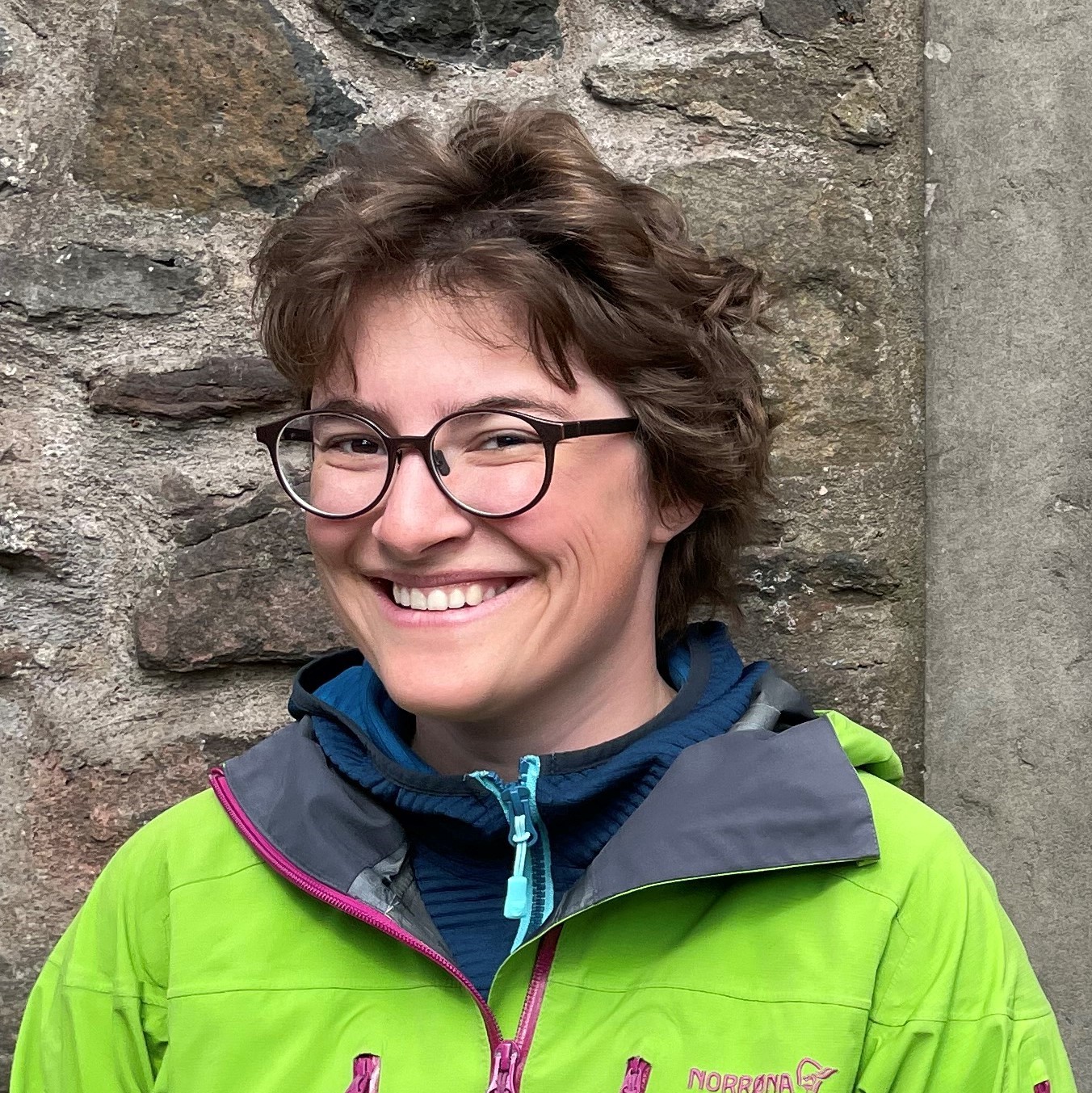Learning the hard way
Xenia Hofmeier attended high school in Basel before coming to ETH Zurich to study computer science. Now in her second year of a doctorate in the Information Security Group of Professor David Basin, she is learning to manage her workload and time between teaching and research, and between short and long-term assignments

What does the beginning of an academic career in computer science look like?
In a series of three interviews, a doctoral student, a freshly graduated Doctor of Sciences and a young postdoc from the department share their motivations and experience.
– This article is part of the "Young researchers in computer science series" –
1/3 Xenia Hofmeier – Learning the hard way
2/3 David Dao – Learning about yourself
3/3 Chengyu Zhang – Following your heart
What motivated you to study computer science?
I discovered it a little bit by chance. In high school, I first wanted to study chemistry but quickly realised I preferred physics. Since there weren’t enough people in physics that year, I ended up with my second choice of supplementary subject: computer science. It was intimidating at first. Most students in the class already had some programming experience, and there were only two women. But we had a good teacher. I studied hard, and I enjoyed it a lot. I got really good grades and realised that I could do just as well as the students who had already programmed a lot.
In my second last year of high school, I took part in the “Schnupperstudium” taster week organised at the Department of Computer Science, and in the end, I decided to come to ETH Zurich for my Bachelor’s.
When did you decide to follow up with a Master’s?
For me, the Bachelor’s always felt like a preparation for it. At first you learn the basics, but the really interesting courses take place in the Master’s programme.
How did you choose which group to go to for your Master’s thesis?
I went to the same group as for my Bachelor’s thesis. At the time, I had spoken to several people who had pitched me various projects. The one I had chosen had appealed to me because it was clear and well-defined, which was what I wanted for a Bachelor’s thesis – in contrast to other more open projects. I had a good feeling about the two supervisors as well, and it turned out great. At the end of my Bachelor’s thesis, I liked the work very much and felt that I could continue working with the same tools for my Master’s and maybe longer.
Would you say that choosing the topic or the supervisor is more important?
I think both are very important, but the supervision especially so. Of course, you need to like the topic if you are going to work on it for several months or years. Choosing the form of supervision is crucial, and you have to make sure it fits with your way of working. In our group, we supervise students pretty closely. I appreciated it as a student myself, and I make sure to do the same now for the students I supervise. We meet every week to exchange feedback, and even if sometimes there might not be much to discuss, at least we make sure that the students are on track and don’t get lost.

“Choosing the form of supervision is crucial, and you have to make sure it fits with your way of working.”Xenia Hofmeier, doctoral student in the Information Security group of Professor David Basin
When did you decide to do a doctorate?
I was already thinking about it during my Bachelor’s, and later I realised I also love to teach. I had done a semester internship as a software engineer before my Master’s thesis as well to see if I would prefer working in industry. I thought that if I didn’t like my Master’s thesis, I wouldn’t do a doctorate, but I enjoyed it a lot and decided to go for it.
During my Master’s, I also spoke to my supervisors and some colleagues about it. I found it helpful to talk to a former doctoral student in my group, whom I knew from courses that I had taken in my Bachelor’s, and to another student who started one year before me. They told me a lot about doing a doctorate and about things I could expect.
Was it easier for you to get the position, having already done your Master’s at ETH?
Definitely. I think I was in a good position because I knew the group and the tool they were using. In general, it is also easier for the professor because they know you and what you are capable of. I feel the Master’s and Bachelor’s theses counted much more than my grades to get the position. I would encourage students to get to know different research groups as much as possible, through semester or course projects. Even if you don’t have the highest grades, you might find the best lab for you this way.
How was the process of choosing the research topic for your doctorate?
The overall topic for me was always clear. I worked with Tamarin Prover, a security protocol verification tool, and I knew I wanted to continue working with it. There were many different possibilities and open questions left to explore. At one point, my supervisor proposed a different topic, which I wasn’t sure about, but shortly after came back with a concrete idea involving Tamarin that I happily accepted. I am now working on follow-up projects to the original one.
Is your experience of the doctorate now comparable to what you had expected?
My vision was that it would be like doing a longer Master’s thesis, plus teaching and taking courses. That was not completely wrong. But also not completely right: the biggest difference is that I am much more responsible for my own work and time.
I have to manage the scheduling of smaller urgent tasks alongside longer-term deadlines, like paper submissions or the end of my thesis. I struggled with this at the beginning because I always wanted to do immediate tasks immediately, and I started doing only that: preparing exercise sessions or classes and giving feedback to students. And there is always more to do than what you have time for. But I also need to do research, which doesn’t have a strict deadline and is more difficult to plan, with only a seemingly distant deadline of six years. I am learning to schedule and prioritise my different tasks better, and I often have to remind myself not to be too perfectionist.
“I have to manage the scheduling of smaller urgent tasks alongside longer-term deadlines, like paper submissions or the end of my thesis. I struggled with this at the beginning because I always wanted to do immediate tasks immediately.”Xenia Hofmeier, doctoral student in the Information Security group of Professor David Basin
Did you receive support for learning these things?
I think I had to learn a lot “the hard way”. The support is there, but you have to ask for it. This is a strong contrast to the Bachelor’s and Master’s theses. We discuss our progress in the group, and it is always helpful to have someone else’s perspective when you feel stuck. But it also often happens that people are busy with various important deadlines, and you need to know who you can ask and when.
How do you manage paper submission deadlines?
I am currently working towards my first submission, which will be a systematic literature review, or what we call a “systematisation of knowledge paper”. I started earlier this year and had no idea when I would finish or how long it would take. I got a bit lost at first, but after several meetings with my supervisors, we defined a better approach and set ourselves a deadline this summer. I think it helps to set things in motion, even if writing is hard at the beginning for many students.
What does a typical week look like?
I make a plan and try to follow it. I am usually busy for one or two days with teaching-related duties, and then I schedule in my research – or writing, and various meetings on smaller projects with other people. When I am not in a meeting, I sit at my computer. I prefer to come to the office because it is an environment that tells me to work, whereas at home I would get more distracted. I do appreciate, however, the fact that we are free to organise ourselves as we see fit as long as we do our work.
What do you do in your free time?
I love cycling and travelling by bike: one- or two-day trips on weekends, and longer trips during vacations. I also started joining the ASVZ bike rides. In addition, I like taking care of plants on my balcony.
Have you already thought about what you will do after your doctorate?
Not yet. I’m enjoying what I am currently doing and will try to make the most of it. There are many options in computer science, both in academia and industry, and teaching is a possibility for me as well. For now, I feel like I still have a few more years to think about it.
What advice would you give Master’s students who are thinking about doing a doctorate?
Not to get discouraged if they have the chance! You shouldn’t think, “Can I do this or not?” or compare yourself to other students, thinking about how intelligent they are or how much they work. If somebody offers you a position, then you will be able to figure it out. Rather, you should decide what you want to do, if you like the work, and if you are interested in digging further. The Master’s thesis is a good opportunity to find that out. You can also do semester projects and internships to find the best place for you if you are not sure where to go at first.
Are industry internships common in computer science?
It is common to do internships between the Bachelor’s and Master’s; and while it can be a nice way to earn a little money during your studies, the most important thing is that they help students acquire relevant experience in computer science. During the doctorate, it depends much more on the group. In ours, it is not very common, but in other groups it is. In some fields, it is important to have an idea of what is being done in industry, to see “real world” applications.